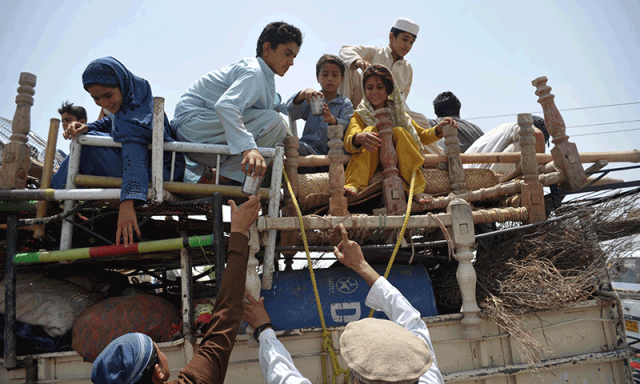Poverty & terrorism
Poverty may not drive people in the direction of militancy, but it may drive them to desperate anti-state actions

Poverty & terrorism
The World Bank report tells us that in two conflict-affected areas in Pakistan, it is the poor households that are likeliest to incur debt, suffer damage in the course of fighting, or be displaced, a feature graphically illustrated by the internally displaced persons who have had to leave their homes in North Waziristan. Militant violence stops the poor from getting their children educated, while they are also more likely to suffer from theft and other crimes. A consequence of that is a drop in consumption, especially in rural areas and a lowering of the quality of food the poor consume. The poor of Pakistan remain largely uncounted — accurately — because it is politically inconvenient to enumerate them. A result of that is that pro-poor policies remain underdeveloped because of the lack of accurate data to base planning upon. Poverty in Pakistan is unlikely to ever disappear, but it can be alleviated, and should be. Poverty may not drive people in the direction of militancy, but it may drive them to desperate anti-state actions.
Published in The Express Tribune, October 13th, 2014.
Like Opinion & Editorial on Facebook, follow @ETOpEd on Twitter to receive all updates on all our daily pieces.














COMMENTS
Comments are moderated and generally will be posted if they are on-topic and not abusive.
For more information, please see our Comments FAQ